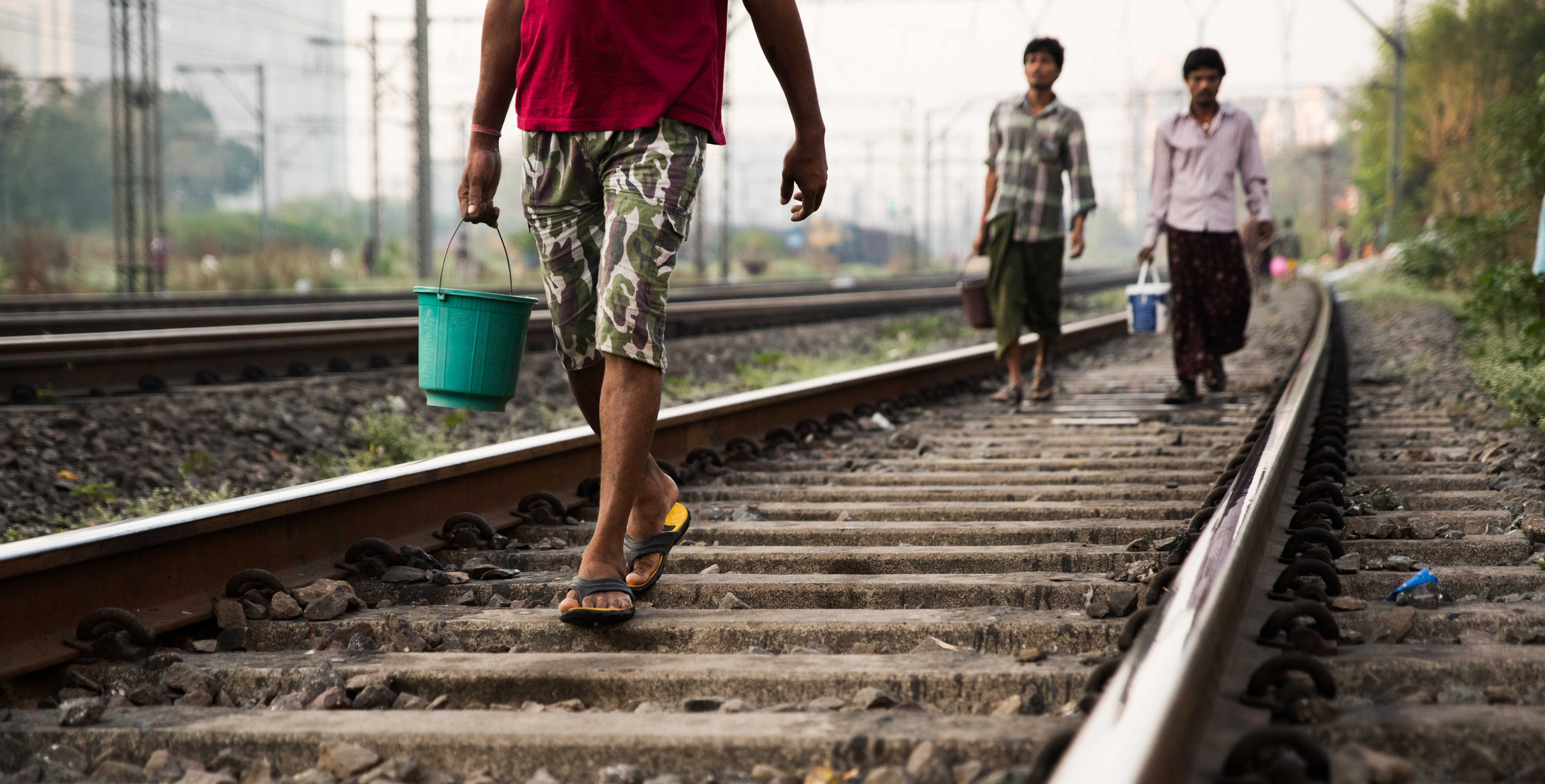Feature
How Porcelain Travels Made Me Reflect On The Need For Sanitation
It was a bit urgent. I had been holding for a really long time. First in the bus, then in the metro. The station had a wash basin but the WC had an unbearable stench. The flush was broken and I chose to hold on for a better option. With great difficulty, I managed to make it to the library. I felt fortunate to be able to use a clean washroom. Once I was done washing my hands, out of habit, I made sure that I used my hand sanitiser. I spent the rest of the time at the library at ease but made a mental note never to drink too many fluids before leaving the house.
The library is one of my favourite places to go to in the city, and last year, on one such bathroom break, I came across a book with a funny name and an even funnier blurb- Porcelain Travels: Humor, Horror And Revelation In, On And Around Toilets, Tubs And Showers. As hilarious as it sounds, I couldn’t believe that someone had written a book about toilets. The cover photo was also interesting, with oceans, continents and a yellow rubber ducky. Immediately, my curiosity was piqued.
While it may sound silly, the author, Matthew Felix, goes on to prove that travelling and the comfort of knowing you can go to the toilet when you want just don’t go hand in hand. It does not even have to be when going around the globe or taking a flight. A simple everyday commute within the city can get utterly complicated if you have an urgent need to use the bathroom, but cannot find a clean one. I felt I had no choice but to borrow the book for the next two weeks. Divided into 25 chapters, Porcelain Travels is hilarious at a whole new level.
Porcelain Travels begins in Morocco. The author headed to the bathroom to answer nature’s call soon after landing in Tangier. To start off, the doors of the bathroom were translucent. Then, balancing with great difficulty on a porcelain basin, he relieved himself, only to realise there was no toilet paper. Much like the denizens of India do, Felix had to use water and his hands to clean himself. Sadly, he landed up using the wrong hand but was left wondering if there was a right hand in this whole process. And thereafter, Felix narrates one hilarious tale after another, all relating to the loos he encounters. He describes every little detail about the toilets vividly. He doesn’t even spare the developed world. In Paris, sitting down on an icy cold toilet is a challenge and while backpacking in Romania, he ends up using urinals that don’t seem to be attached to any plumbing, sending his urine all over the floor. Be it Copenhagen, Malta, Barcelona or Beirut, Felix’s toilet escapades are never-ending. This book is highly innovative in the way it relays information. Felix doesn’t bother much with censoring but that doesn’t mean the book is ribald or lewd. The tone is frank and the narrative refreshing, especially given most people are averse to writing about such a topic. It is to his credit that he shows a great deal of maturity in dealing with the issues of toilet etiquette, always keeping cultural and racial sensitivities in mind.
(Image by Jorge Royan, via Wikimedia Commons)
Humour and funny anecdotes aside, while reading this book, I couldn’t help but wonder about how several million people across the world did not have access to toilets or proper sanitation. According to a 2014 BBC report, nearly 70% of the Indians living in villages defecated in the open due to the lack of toilets. According to another study, the Research Institute for Compassionate Economics (RICE) states that 60% of the world population that defecates in the open lives in India. Surprisingly, urban households also prefer this practice despite the obvious health and safety hazards.
Thankfully the Indian government is taking steps to fix the situation. While the statistics are still terrible, the ground level work being done is nonetheless commendable. The sanitation coverage of India almost doubled in 2017 due to the Clean India or Swach Bharat Mission. I discovered that 568.15 lakh individual household latrines have been built since 2014, which is a 35.45% increase.
Despite these efforts, there are still gaps that need to be filled. In urban areas, many people choose to pee and then leave the house, or hold till they return home, to avoid using stinky public toilets. Urban slum dwellers do not have toilets in their tiny one-room houses and have to use a common public toilet, often riddled with long queues. Women are especially left vulnerable because of this. My house-help mentioned that she bathes in the evening as that is when the common toilet near her rented room is least crowded and she can find some privacy as the doors do not have proper locking systems in place. The poor sanitary conditions can lead to not only a huge number of medical risks but also potentially unsafe situations for women as they are quite literally exposed in a public place.
Till the time proper sanitation is available to all, I feel a greater sensitivity to the needs of women should be promoted. People should be taught proper behavioural guidelines, how to use public toilets appropriately, and basic hygiene and cleanliness at an individual level. Most of all, there needs to be conversation around this problem, if possible, with door to door initiatives and even with children in each and every school.
(Image of open defecation in India, via Flickr)
While I don’t have Felix’s experience, I hope I do have his capacity to bear the unbearable and be sensitive to other cultures even in dire circumstances. Sanitation and toilet etiquettes may differ drastically or slightly depending on where you are, but the importance of having access to a clean toilet does not change. Porcelain Travels taught me that patience and perseverance are most important when it comes to travelling and using the loo. Most importantly, I realised that in my own house I have a luxury that till now I was taking for granted. When I ultimately returned the book to the library, I couldn’t help but wonder, who knew so much could be written about toilets?

In an age of emphatic loquacity, Tasnima Yasmin is a staunch advocate of verbal minimalism with quietude as a reliable companion that is equally reciprocated by her books. She specialises in Modern/Post Modern English Literature and Linguistics. She has a Masters in English Language and Literature from the University of Calcutta. You can connect with her on Facebook.
Read her articles here.






